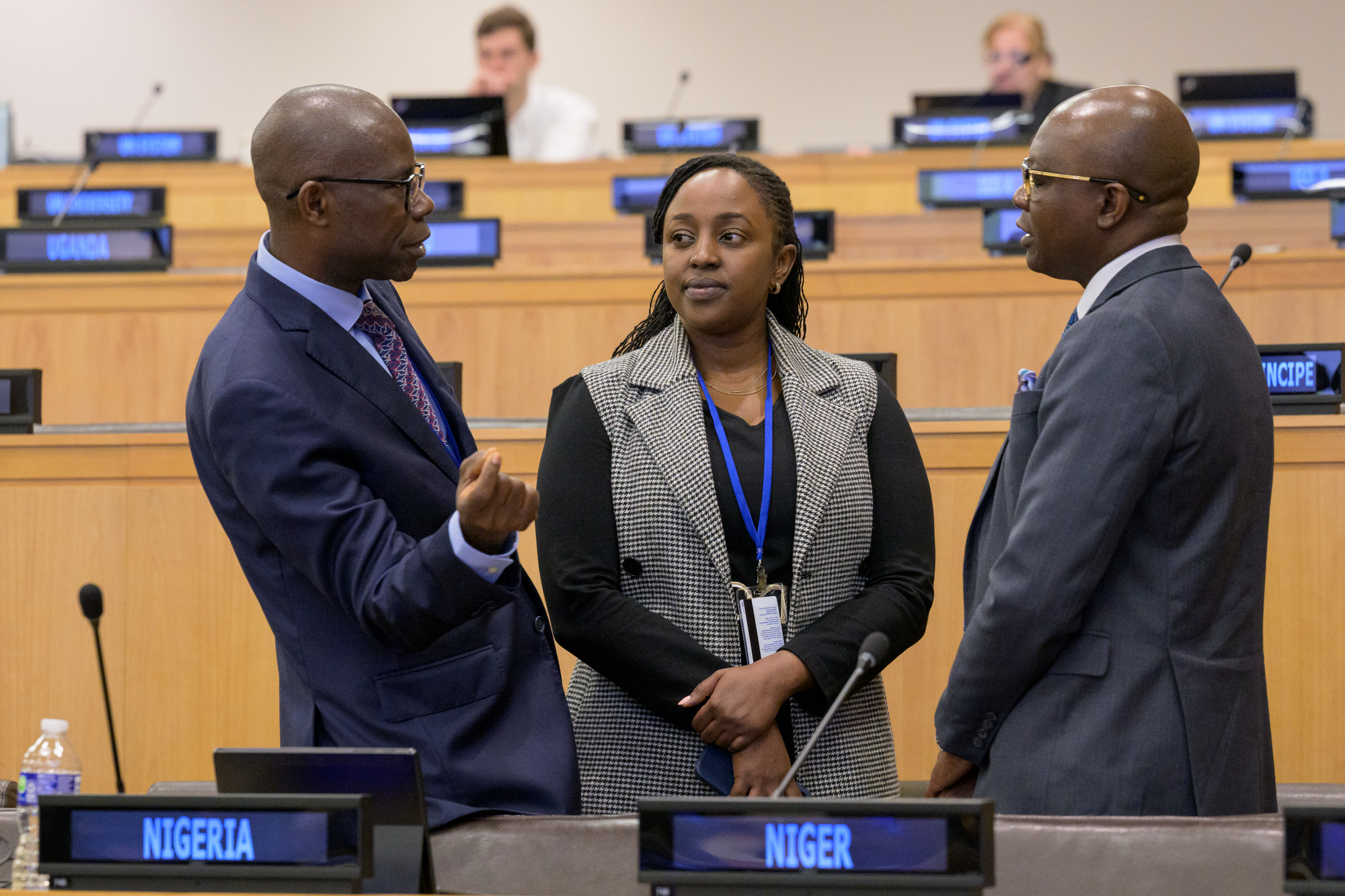Share post now

global
The Alliance Sud magazine analyses and comments on Switzerland's foreign and development policies. "global" is published four times a year (in german and french) and can be subscribed to free of charge.
UN tax convention
13.06.2024, Finance and tax policy
Negotiations are now in progress at the UN on the future drafting of the Framework Convention on International Cooperation in Tax Matters. Our tax policy expert was on hand, and was impressed by the negotiating strength of the African countries.

Delegates at the UN Tax Convention meeting in New York in May 2024. The spearhead for more tax justice
through a shift from the OECD to the UN includes Nigeria. © UN Photo / Manuel Elías
The UN is not its own best PR agency, and certainly not when it comes to tax policy. Hence the failure of world public opinion to notice that at the end of April, something historic was occurring inside the UN headquarters on the East River in New York. For the first time in history, the governments of the 196 UN Member States assembled there to negotiate the future shape of the UN Framework Convention on Taxation, the drafting of which was decided by the General Assembly this past December. The main driver of the process is the group of African countries at the UN, known as the "Africa Group". The countries of the Global South (G77) have never made as much headway with their tax policy concerns at the UN as they have in the past six months.
The organisational and substantive structure of the tax convention is now to be hammered out by August of this year, i.e., the "Terms of reference" are to be negotiated. If the General Assembly approves them in September, the convention itself and the details of its content can then be drawn up. That would constitute the basis on which legally binding tax reforms could then be formulated, and which would have to be implemented by Member States thereafter. This therefore represents a one-off opportunity for the countries of the Global South and the global tax justice movement to end the OECD's dominance in international tax policy and make the UN the central player, thereby laying the organisational groundwork for a more just multilateral tax policy.
The past 60 years have witnessed several such attempts to end the fiscal dominance of the rich countries of the North. Today, the outlook is brighter than ever, for two main reasons:
Accordingly, the representatives of the Global South approached the negotiations in April with confidence, and formulated their demands in a consistent and well-founded manner. These encompass the following dimensions of international tax policy: various aspects of corporate taxation, combating unfair financial flows, taxing the digital economy, environmental and climate taxes, taxing large fortunes, information sharing and tax transparency matters, and also tax incentives. The first written draft of the terms of reference of the convention was published in early June. It addresses almost all aspects of G77 demands and forms the basis for the next round of negotiations, set for July and August in New York.
The South's offensive places the OECD countries in something of a predicament. On the one hand, of the issues so far negotiated in the OECD and with its related forums, they want to transfer as few as possible to the UN, they themselves being beneficiaries of the reforms made hitherto. It is no secret that this also applies to Switzerland. Currently, the country is merely drifting along with OECD States in the UN process, with relatively little ambition. At the start of the process, the State Secretariat for International Finance (SIF) was still hoping not to have to participate at all in the negotiations, as the process was deemed a farce. This was clearly a miscalculation. If the OECD group attempts to hinder the UN process by holding fast to the OECD as the authoritative forum for global tax matters, it would further antagonise the countries of the South at the multilateral level. In the light of the current major geopolitical conflicts with Russia and China, "the West" can really no longer afford this. Ultimately, no-one has an interest in seeing Africa, the largest continent, move into the geopolitical camp of Russia and China.
In the UN tax negotiations, the OECD countries are therefore hiding behind what they consider the panacea: "capacity building". They assert their readiness to provide the tax authorities in the Global South with more expertise and money to enable them to catch their tax evaders. In conference room 3, Everlyn Muendo of the Tax Justice Network Africa (TJNA) had a fitting response to this: "We cannot capacity build our way out of the imbalance of taxing rights between developed and developing countries and out of unfair international tax systems." Unlike the OECD, the UN also allows civil society to attend and speak during the negotiations.
It is not a lack of expertise and technical capacity that is costing the Global South tax revenues, but the international tax system itself and the unfair apportionment of taxation rights between North and South that is inherent in that system. The Africa Group and its allies cannot be expected, any time soon, to content themselves with a negotiation outcome that does not offer the prospect of fundamental changes to the international tax system.
The contribution of Alliance Sud expert Dominik Gross to the negotiations in New York at the end of April:
Share post now

global
The Alliance Sud magazine analyses and comments on Switzerland's foreign and development policies. "global" is published four times a year (in german and french) and can be subscribed to free of charge.